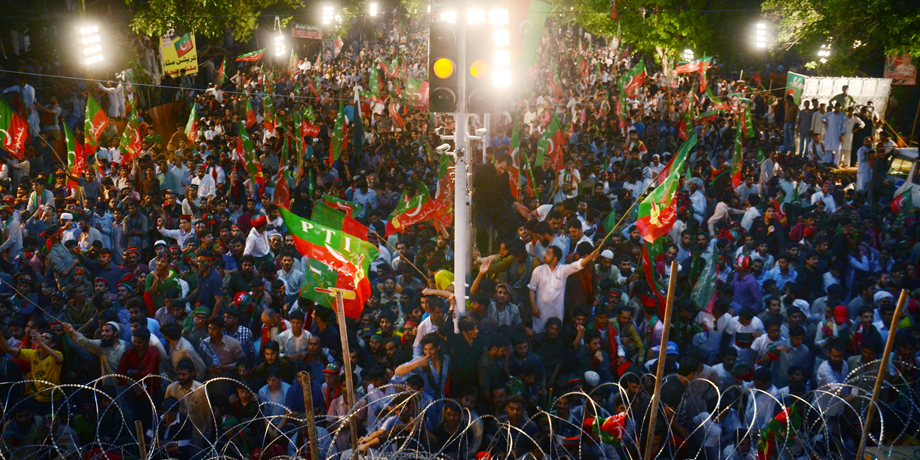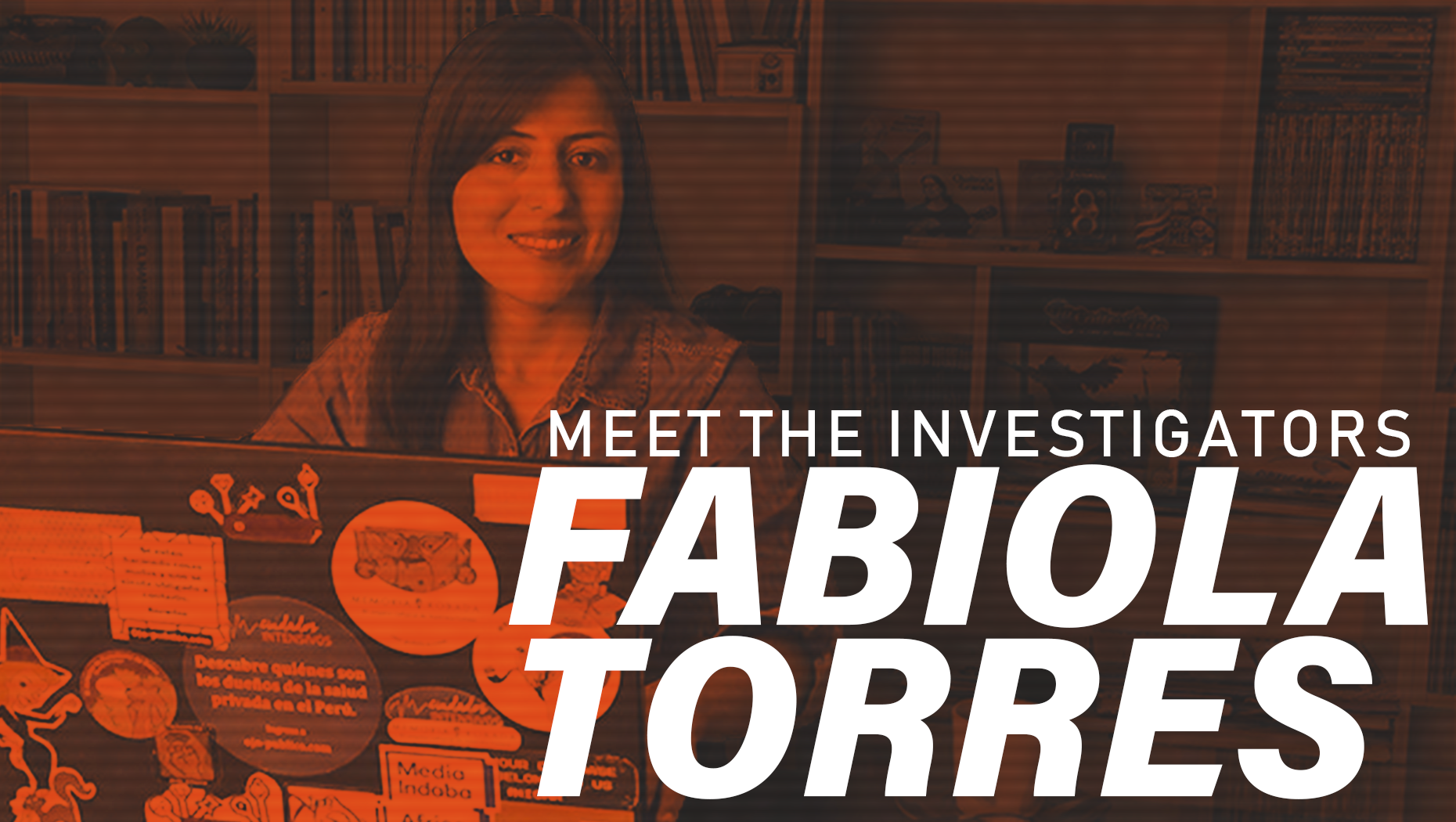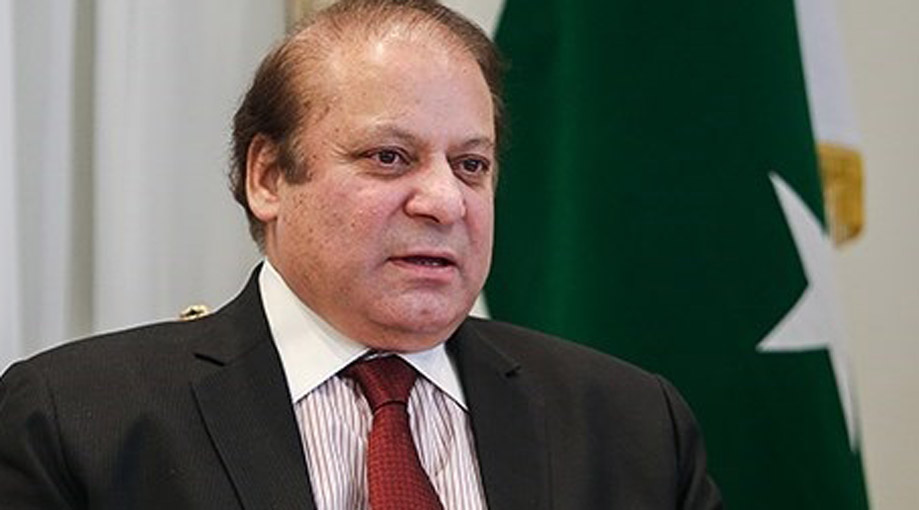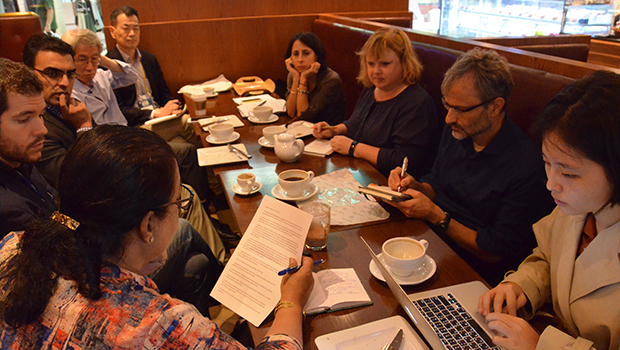The International Consortium of Investigative Journalists has hundreds of members across the world. Typically, these journalists are outstanding in their countries and have won many national and global awards. Our monthly series, Meet the Investigators, highlights the work of these tireless journalists.
This month, we speak to Umar Cheema, an award-winning Pakistani investigative reporter with The News, who uncovered the offshore interests of Pakistan’s former Prime Minister Nawaz Sharif as part of the Panama Papers investigation. Cheema, who attracts plenty of commentary on social media, has faced numerous threats for his reporting in the public interest. Follow him on Twitter.
Tell us how and why you chose this career. Do you have a memorable anecdote to share?
After I passed my 10th-grade exam, my father asked about my future plan. For a child who had grown up in a remote village without basic facilities, this was a big question. I told him: “I want to become either a politician or a bureaucrat. Public service is my dream.” I thought that only politicians and bureaucrats have been vested with the power to make a difference.
When I was admitted to the University of Punjab in Lahore to pursue a masters in journalism my purpose was to obtain a degree instead of practicing journalism. After finishing university, I planned to prepare for the competitive exam to qualify for my dream government job. Meanwhile, I started reporting for a newspaper just to pay my bills.

I got to know the efficacy of information through my early reporting experience. I realized that the power doesn’t vest with the so-called powerful. It is rather hidden in truth that they want to suppress.
Being a truth-teller is the greatest service to society. It gave me a reason to live because I didn’t want to only exist. Journalism was the answer. It is now my passion and profession alike. I am an accidental journalist but it was a happy accident.
What’s the current status of journalism in Pakistan? What are the biggest challenges for independent reporters who want to hold the powerful to account?
Journalism is in a serious crisis. It is facing challenges like never before. There used to be a time when journalists were only concerned about physical threats. Nevertheless, Pakistani media was vibrant and resilient alike. It has boldly faced military dictators who ruled this country for 34 years in different periods.
The situation has changed from bad to worse now. There is rampant censorship. The Pakistan Army’s spokesman recently advised media persons to do “positive reporting”. Journalists critical of government policies are being forced to quit. Those still at work are either facing pay cuts or delay in salaries. Nevertheless, the struggle is life. Journalists are fighting back. Reports failing to find space in mainstream media pop up at news websites and social media.
Have you ever faced threats or felt in danger because of your job? If so, tell us what happened and how you overcame that situation.
In countries like Pakistan, speaking truth to power isn’t without a price. Most journalists have joined the profession fully aware of perils. Some are only harassed; others have had first-hand experiences of brutality. I am one of the latter. I was first exposed to the dangers during my fourth year in this profession. It was a hit-and-run incident in 2004. I remained bedridden for six months due to a compound fracture after a car hit me twice. An anonymous caller later advised me to “be careful in future.”
Six years later, I was kidnapped and tortured by unidentified gunmen.
This was the most challenging time. Besides being a journalist, I am a father, a husband, a son and a brother. My family wanted me to quit the profession. There was a rumor mill running high to discredit me through fabricated stories as if it was a made-up incident. I was chased a number of times. I became acquainted with the “post-traumatic stress disorder” term for the first time when I experienced this.
Nevertheless, I didn’t want to become a horrible example for other journalists. Nor could I have forgiven myself if I had been scared into silence.
In July last year, the National Counter Terrorism Authority issued a threat alert suggesting that a terrorist organization had planned to kill five journalists, including me. I came to know it through an official source but none of those journalists were informed. Two months later, I received a call from police asking whether I needed security. I politely declined.
To say that I’m one of the most trolled Pakistani journalists would not be an exaggeration
– Umar Cheema
Tell us about your favorite investigation so far.
If the impact is what counts, my investigation on taxes and the Panama Papers tops the list. In 2012, I reported on the taxes of all the lawmakers. Around 70 percent of lawmakers had not filed the tax returns; one out of five members of parliament (MPs) didn’t even have National Tax Number required for the filing. Other than legal, there was a moral question: the ones who impose taxes on people don’t pay their own. How ironic.
It generated hot debate as the general elections were also around the corner. The government decided to publish two tax directories each year: one of the MPs and another of citizens filing tax returns. Pakistan became the fourth country in the world to make public tax records. The other three are Norway, Sweden and Finland.
Panama Papers was an international scandal, and I was privileged to be part of that team. It is still in the news. Why so? Because family members of the sitting prime minister Nawaz Sharif were named among the owners of offshore companies. However, the debate didn’t move much beyond the prime minister. There were around 400 Pakistanis named — in other words, almost the entire elite. With few exceptions, they went scot-free.
Partly as a result of the Panama Papers investigation, former Prime Minister Sharif was disqualified from the premiership, banned from politics and fined $10.6 million on corruption charges. Did you expect such an outcome when you began working on the Panama Papers in 2015? What surprised you the most?
To be honest, I have quite mixed feelings about this episode. The moment I came to know about the family of Prime Minister Nawaz Sharif in Panama Papers, it was easy to predict what was going to happen after the publication. Things went ahead accordingly.
The Sharif family was on trial — first in the media and then in the courts. Accountability was the buzzword. Allegations and counter-allegations made headlines. The Treasury would call it an “international conspiracy against democracy,” and the scandal-hungry opposition found it a blessing in disguise. I assumed the role of a fact-checker, as the ruling family was trying to distort facts and the political rivals were exaggerating them.
Hopes of holding the powerful to account went sky high as the Supreme Court intervened to take up the case in order to avert the political crisis. However, the process started being polluted when an investigation committee was formed. Included in it were two high-ranking army officers with no experience in financial probes. Their inclusion raised eyebrows because relations were already tense between the prime minister and the military establishment.
When the Supreme Court handed down the verdict, it disqualified the prime minister on grounds unrelated to Panama Papers (i.e. because he was not a “righteous” and “honest” politician as required by the Constitution.) He was sent home for not declaring the salary that he claimed he had never received. The verdict made Sharif a victim rather than the villain. Hope of holding the power to account lost.
Has the Panama Papers investigation changed your professional and/or personal life?
It has become my reference point, a source of my introduction. It has also raised the bar for me. People now compare my stories with the Panama Papers. One day, a top bureaucrat rang me after I reported about his unbecoming behavior with a subordinate. “On one side, you broke Panama Papers story; on the other side, you’re reporting about me. What a high, and what a low,” he taunted. The Panama Papers also earned me good sources. On occasion, I’m introduced as the one “who brought down Nawaz Sharif.” There, I feel myself in an awkward situation. Had that been done through a fair trial, I would have proudly accepted such compliments.
Twitter and other online platforms didn’t exist when you began your career. Now you have about 980,000 followers on Twitter and are sometimes harassed by so-called trolls. How has a platform like Twitter changed your job?
To say that I’m one of the most trolled Pakistani journalists would not be an exaggeration. There is an army of fake accounts dedicated to me; a Twitter audit has found that almost half of the followers are fake.
Diverse rumors are spread through these accounts in order to influence genuine accounts. That I’m a corrupt journalist ready to sell my soul is one of them. Imaginary stories are circulated. One of them was how I got an apartment in Dubai from Nawaz Sharif in a “hush-up deal.” The narration was so powerful that it looked plausible. I would have tended to believe had it not been about me. Another story is about my imaginary 18-year old daughter Lubna Cheema. In reality, none of my children are 18-years old, let alone my daughter. I have explained this in vain a number of times on Twitter.
And how do you cope with the constant harassment on social media and offline?
I have ‘climatized’ myself to this environment. I don’t bother about what they say because I don’t read their comments. I only check the number of likes and retweets.
What’s the most memorable (good or bad) response or comment you’ve received from a reader, and how did you respond?
I hardly read comments, let alone respond to them because they are littered with abuse. However, as a policy decision, I don’t block trolls. I acknowledge their right to free speech until they preach violence. Allowing them to bark gives me a feeling of magnanimity. In the beginning, I used to respond to criticism with a hope they are keen to know the facts. Reality dawned on me later, that people wish to hear what they want to hear.
What are the issues that you’re most passionate about and eager to cover, and why?
Journalism drives me crazy. Whichever issue I take up and whatever I write about, impact remains the desired objective. I have reported on politics, national security, courts, bureaucracy, taxation, and health matters at different times during my 18 years in journalism so far. Of late, taxation and health issues have caught my attention, because they are directly related to the public.
Writing on such matters resonates with common people. I look for anecdotes to connect the common man with big issues in order to trigger policy debate. Doing so is also important at a time of growing mistrust between the masses and the media. They feel they are being ignored and that media is reporting on elite-oriented issues. I got that realization especially when I started reporting on health issues in which my interest developed during work on Implant Files led by ICIJ.
What is one lesson that you’ve learned and that you’d like to pass on to the new generation of investigative journalists in Asia, and beyond?
Investigative journalism is the best form of journalism because it creates impact through evidence-based reporting. One must have passion and courage to practice it. You can’t achieve excellence in the absence of either of them.
Passion is integral for the pursuit of truth, and the courage is needed to make it known. One doesn’t have to be a born courageous. You can acquire by practicing it. For that to occur, you will have to find a reason to do something purposeful in life. Investigative journalism helps you in this.



